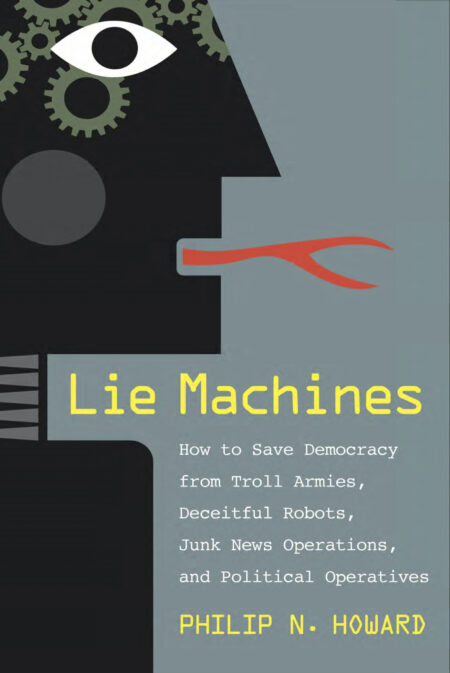
Professor Philip Howard
Professor of Internet Studies
Philip N. Howard is a professor of sociology, information, and international affairs. He is Director of the Programme on Democracy and Technology, and is a Professorial Fellow of Balliol College.

Artificially intelligent “bot” accounts bolster or berate politicians on Twitter. Conspiracy theorists publish junk news sites to promote their bunk. Campaigners create fake dating profiles to attract young voters. In Lie Machines: How to Save Democracy from Troll Armies, Deceitful Robots, Junk News Operations, and Political Operatives (Yale University Press), author Philip N. Howard delves into and exposes the technologies that jeopardize, in turn, our attention, our discourse, and our democracies.
Howard defines a lie machine as “a system of people and technologies that distribute false messages in the service of a political agenda.” Harnessing information garnered from polling data, internet postings, and interviews with journalists, bot writers, and political consultants, Howard offers a way to identify and derail these “lie machines.”
Full of riveting behind‑the‑scenes stories from the world’s biggest and most damagingly successful misinformation initiatives—including those used in Brexit and the U.S. presidential election—Howard not only shows how these campaigns have evolved from older propaganda operations but also gives new insight into why they are so effective at swaying public opinion.